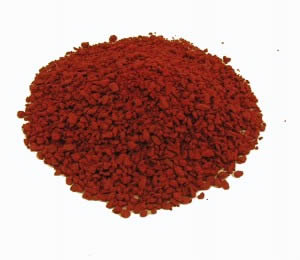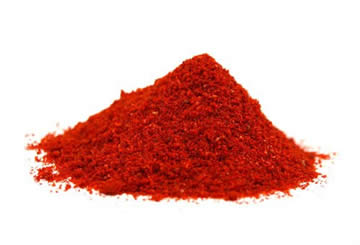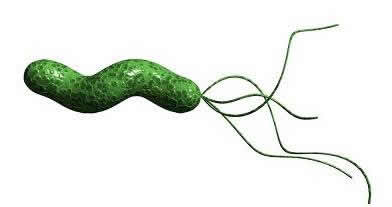Lycopene (molecular formula: C40H56) is a naturally occurring chemical that gives vegetables and fruits a red color. Tomatoes are the most concentrated food source of lycopene, although papaya, apricots, watermelon, guava, and pink grapefruit are also important sources. 240 mL of tomato juice provides approximately 23 mg of lycopene. Research shows that lycopene can be absorbed more efficiently by the body after it has been processed into juice, sauce, paste, or ketchup. Eating lycopene-rich vegetables and fruits together with a small amount of oil or fat increases the amount of lycopene absorbed by the intestines.
Lycopene and Cancer Risk
Lycopene has been found to possess antioxidant and antiproliferative effects in animal and lab studies. Lycopene is the most common carotenoid in the human body and is one of the most strong carotenoid antioxidants. New researches show that a daily intake of 7-8 mg is enough to maintain sufficient levels of lycopene to fight oxidative stress and prevent chronic diseases. “The shape of the lycopene molecule makes it very effective in being able to quench free radicals,” says Dr. Edward Giovannucci. “We don’t really understand it entirely yet, but lycopene may have specific properties that protect the cell in a way other antioxidants may not.”
Although the antioxidant activities of lycopene are thought to be primarily responsible for its useful effects, evidence is accumulating to suggest other mechanisms such as modulation of intercellular gap junction communication, hormonal and immune system and metabolic pathways may also be involved. Numerous studies (observational studies) correlate high intake of lycopene-containing foods or high lycopene serum levels with reduced incidence of cancer. Findings is strongest forlycopene preventive effect against cancer of the prostate, stomach and lung. It may also help to preserve against cancer of the breast, cervix, pancreas, esophagus, rectum and colon. Lycopene has been demonstrated to have other possible anti cancer activities particularly relating to modulation of intercellular communication and alterations in intracellular signalling pathways.
 There is some findings that getting lycopene from foods (6.5 mg/day or more for women and 12 mg/day or more for men) reduces lung cancer risk in nonsmoking men aged 40 to 75, and nonsmoking women aged 30 to 55. The University of Illinois found that comparing woman with the highest levels of lycopene and those with the lowest demonstrated that the highest levels were 5 times less likely to have cervical cancer. In a study performed by the “China Medical University Department of Nutrition“, the cancer-combating lycopene has been shown to inhibit the proliferation of colorectal cancer cells. It accomplishes this by suppressing an significant signaling pathway that enables cancer cells to grow and survive. Dr. Yoav Sharoni of Ben-Gurion University, explained that oral lycopene had a protective property against UV skin damage, which suggested a potential inverse connection between lycopene and skin cancer. He reported that while sunscreens provide external protection from damaging UV rays, antioxidants like lycopene in the diet might provide internal protection from sunburn.
There is some findings that getting lycopene from foods (6.5 mg/day or more for women and 12 mg/day or more for men) reduces lung cancer risk in nonsmoking men aged 40 to 75, and nonsmoking women aged 30 to 55. The University of Illinois found that comparing woman with the highest levels of lycopene and those with the lowest demonstrated that the highest levels were 5 times less likely to have cervical cancer. In a study performed by the “China Medical University Department of Nutrition“, the cancer-combating lycopene has been shown to inhibit the proliferation of colorectal cancer cells. It accomplishes this by suppressing an significant signaling pathway that enables cancer cells to grow and survive. Dr. Yoav Sharoni of Ben-Gurion University, explained that oral lycopene had a protective property against UV skin damage, which suggested a potential inverse connection between lycopene and skin cancer. He reported that while sunscreens provide external protection from damaging UV rays, antioxidants like lycopene in the diet might provide internal protection from sunburn.
Some researches in men with precancerous changes in their prostate shows that taking 4 mg of lycopene supplements twice daily might delay or avoid progression to prostate cancer. In a prospective cohort study, an inverse association between lycopene levels and overall cancer risk was observed, suggesting that higher concentrations of lycopene may help lower cancer risk overall. Men with the highest levels of serum lycopene had a 45% lower risk of cancer than did men with the lowest levels of lycopene. In a study, participants with HGPIN (high-grade prostate intraepithelial neoplasia) received 4 mg of lycopene twice a day or no lycopene for two years. A greater reduction in serum PSA (Prostat Spesifik Antijen) levels was observed in those treated with lycopene, compared with those who did not take the lycopene. During follow-up, adenocarcinomas were diagnosed more often in patients who had not received the lycopene than in people who had received lycopene. These results demonstrate that lycopene may be effective in preventing HGPIN from progressing to prostate cancer.
 The most common test for silent inflammation is a measurement of blood levels of a substance called CRP (C-reactive protein). C-reactive protein is produced in the liver and in the coronary arteries, and is then released into the bloodstream when the body is fighting inflammation. In 2006, a clinical study analyzed the effects of astaxanthin on blood CRP levels. Sixteen participant received astaxanthin and nine received a placebo. Blood CRP levels were measured before the participants began the astaxanthin, and again at the end of the study. The study lasted for 8 weeks. At the end of the study, the treatment group experienced a 20 % diminution in CRP levels in 8 weeks, while the placebo group saw an increase in their levels. Another study on the effects of astaxanthin on CRP was reported in 2006. This study particularly used people with elevated CRP levels that would put them in a high risk category. After 3 months in the ongoing study, 43% of the astaxanthin group experienced enough of a diminution in their blood CRP levels to fall out of the high risk category and into the average risk group. Close to half of the participants returned their CRP levels from high risk to normal by supplementing their diets with astaxanthin.
The most common test for silent inflammation is a measurement of blood levels of a substance called CRP (C-reactive protein). C-reactive protein is produced in the liver and in the coronary arteries, and is then released into the bloodstream when the body is fighting inflammation. In 2006, a clinical study analyzed the effects of astaxanthin on blood CRP levels. Sixteen participant received astaxanthin and nine received a placebo. Blood CRP levels were measured before the participants began the astaxanthin, and again at the end of the study. The study lasted for 8 weeks. At the end of the study, the treatment group experienced a 20 % diminution in CRP levels in 8 weeks, while the placebo group saw an increase in their levels. Another study on the effects of astaxanthin on CRP was reported in 2006. This study particularly used people with elevated CRP levels that would put them in a high risk category. After 3 months in the ongoing study, 43% of the astaxanthin group experienced enough of a diminution in their blood CRP levels to fall out of the high risk category and into the average risk group. Close to half of the participants returned their CRP levels from high risk to normal by supplementing their diets with astaxanthin. In a study examining astaxanthin’s impact on immune response, scientists from “Washington State University” divided 42 women into one of 3 groups: placebo, 2 mg astaxanthin, or 8 mg astaxanthin daily. After 8 weeks of supplement, blood levels of astaxanthin in both astaxanthin groups were found to be significantly higher. Also, both levels of astaxanthin improved activity of natural killer cells, which target. At the end of the study, the levels of a very significant marker of DNA damage was found to be 32% and 43% less for the 2mg and 8mg groups as compared to the placebo group.
In a study examining astaxanthin’s impact on immune response, scientists from “Washington State University” divided 42 women into one of 3 groups: placebo, 2 mg astaxanthin, or 8 mg astaxanthin daily. After 8 weeks of supplement, blood levels of astaxanthin in both astaxanthin groups were found to be significantly higher. Also, both levels of astaxanthin improved activity of natural killer cells, which target. At the end of the study, the levels of a very significant marker of DNA damage was found to be 32% and 43% less for the 2mg and 8mg groups as compared to the placebo group. Astaxanthin acts as an antioxidant that protects against tissue damage induced by reactive oxygen metabolites (ROMs), and it may also inhibit infection through an altered immune response. Because astaxanthin can change the immune response, it is many effective at reducing
Astaxanthin acts as an antioxidant that protects against tissue damage induced by reactive oxygen metabolites (ROMs), and it may also inhibit infection through an altered immune response. Because astaxanthin can change the immune response, it is many effective at reducing  Astaxanthin provides protection from more types of free radicals than many other antioxidants. Also, research has proven that astaxanthin is able to cross the blood-brain barrier and the central nervous system better than many other antioxidants. This feature allows its benefits to reach and protect the eyes and brain from free radical damage. In lab studies, astaxanthin protects retinal cells against oxidative stress and significantly decreases the area of destructive new blood vessel growth on retinas, a hallmark of advanced macular degeneration. According to a study published in February 2009 in the Chemical Research Toxicology; astaxanthin may decrease the risk of developing cataracts. In a study showed that astaxanthin is effective in preventing ameliorating retinal injury and the degeneration of photoreceptors due to ageing. In another study that subjects who received 5 mg astaxanthin per day for one month showed a %54 reduction of eye fatigue complaints.
Astaxanthin provides protection from more types of free radicals than many other antioxidants. Also, research has proven that astaxanthin is able to cross the blood-brain barrier and the central nervous system better than many other antioxidants. This feature allows its benefits to reach and protect the eyes and brain from free radical damage. In lab studies, astaxanthin protects retinal cells against oxidative stress and significantly decreases the area of destructive new blood vessel growth on retinas, a hallmark of advanced macular degeneration. According to a study published in February 2009 in the Chemical Research Toxicology; astaxanthin may decrease the risk of developing cataracts. In a study showed that astaxanthin is effective in preventing ameliorating retinal injury and the degeneration of photoreceptors due to ageing. In another study that subjects who received 5 mg astaxanthin per day for one month showed a %54 reduction of eye fatigue complaints.